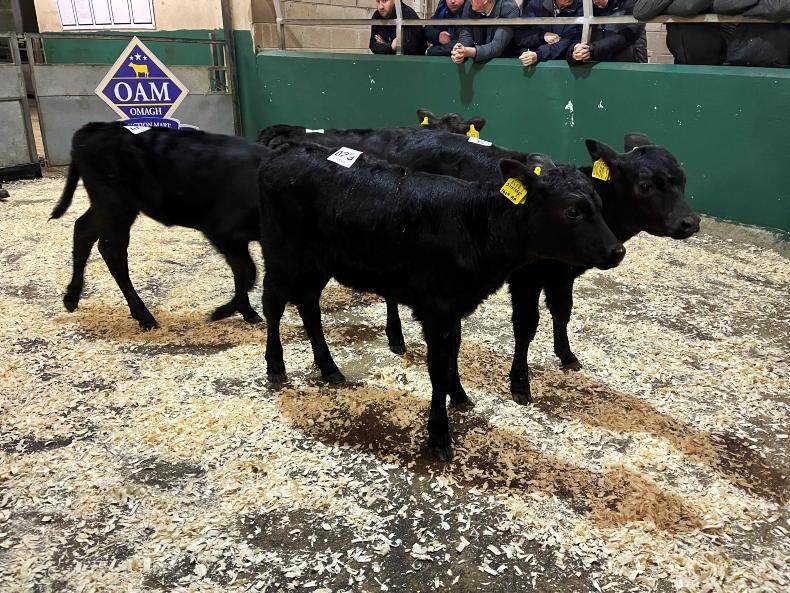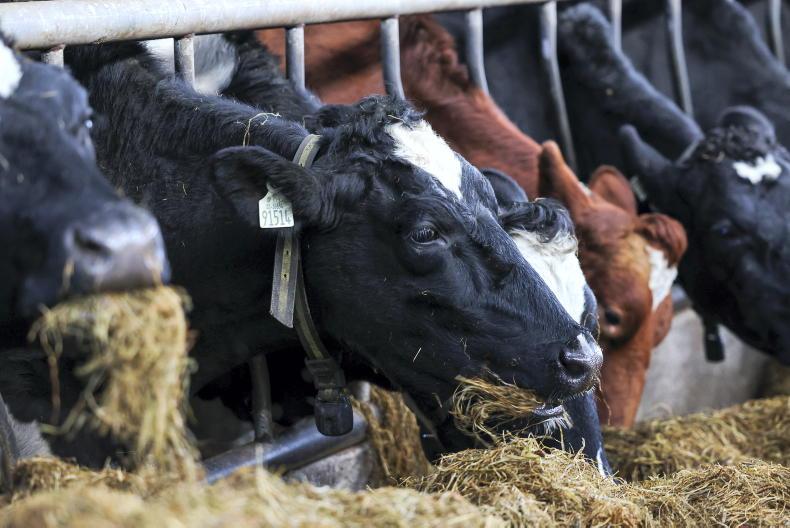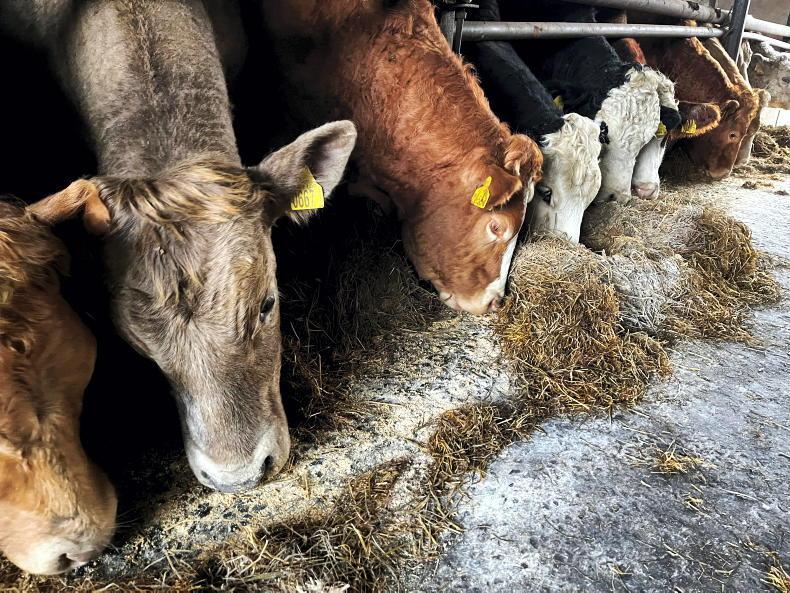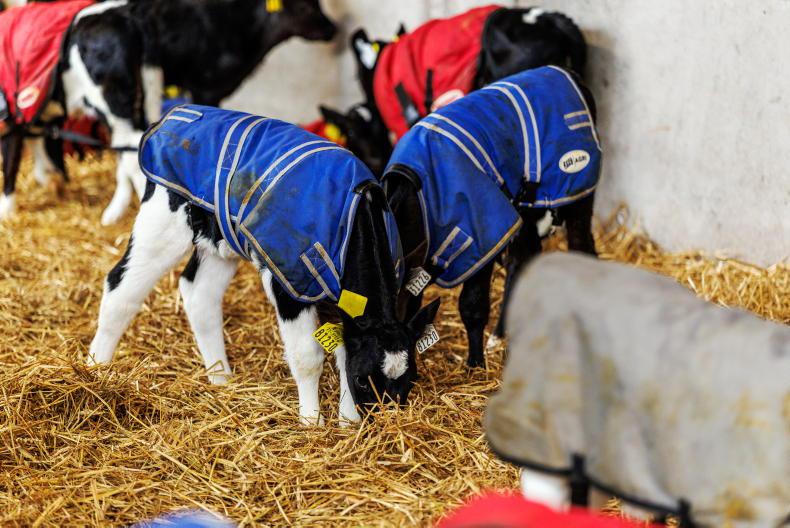When faced with the problem of animals coughing in the autumn, lungworm (hoose) is often the prime suspect. Lungworms like and thrive in Irish weather and grazing systems. Outbreaks can be very unpredictable, but usually occur later in the summer and into the autumn, especially a few weeks after a prolonged period of rain.
Lungworm can also be a reason for a severe drop in milk yield. The parasites can cause extreme irritation and damage to the lungs, with some animals dying suddenly.
All cattle, particularly first season grazers, should be closely monitored at this time of year for any breathing difficulties or coughing, and treated without delay if lungworm is suspected.
Repeated problems on-farm? Get a diagnosis.
A number of viruses and bacteria can also affect the respiratory system, resulting in coughing on their own, or as a sympton of a lungworm infection. Respiratory diseases, whether caused by lungworm, viruses or bacteria, can negatively impact animal performance, even if there are few clinical signs.
Ongoing problems on-farm are worth investigating, as the production losses over time will outweigh the costs of getting a correct diagnosis and treating accordingly.
Your veterinary practitioner can take blood, nasal swabs, lung washes or dung samples to investigate the cause – or multiple causes in complicated cases – and suggest treatment or prevention options.
Sub-optimal nutrition and other stressors, such as limited space and poor ventilation in housing, can also contribute to respiratory disease.
Prevention is better than cure
Cattle usually develop immunity against lungworm by the time they are adults, if they were sufficiently exposed to the parasites as young stock and periodically re-exposed to maintain this immunity. Good management of the dosing strategy for youngstock is key to allowing exposure to lungworm and building immunity, without developing clinical signs.
Each farm has different risk factors
Overuse of wormers in calves can prevent this exposure. Bought-in replacement heifers or youngstock reared away from the main dairy herd may be at risk of developing clinical signs in their first lactation, if they have not built up immunity to lungworm. A high build-up of lungworm larvae on pastures can overburden animals, even if they have some immunity. Good grazing management can help prevent this.
Vaccines are also available, but these need to be given before the high-risk season. Each farm has different risk factors and a tailored treatment plan should be discussed with your veterinary practitioner.
CellCheck webinars
Due to the current restrictions, AHI are unable to host this autumn’s on-farm CellCheck events. As an alternative, AHI and Teagasc will host a series of webinars for members of dairy discussion groups. The theme will be: ‘2020 drying off season – are you ready?’.
AHI intend to run 40 one-hour webinars over a four-week period, from Monday 21 September to Friday 16 October. They will be held twice each day at 11am and 2pm. The idea is to refresh the key elements for a successful dry period and give members the opportunity to pose questions to experts in the area. The webinar will be a combination of videos and case studies, with plenty of time allocated for questions. To book, contact your discussion group facilitator for details.
There is a growing interest in selective dry cow strategies
Putting time aside to discuss the drying-off procedure and plan with your veterinary practitioner is a very important task when preparing for the upcoming season. There is a growing interest in selective dry cow strategies, which involve a more targeted use of antibiotic treatments, as we move away from the traditional practice of treating all cows with antibiotics at drying-off. Remember that a selective drying-off strategy is not something to embark on without seeking professional support and advice.
Milk recording results and farm records will be reviewed, as well as current practices when drying off cows
As part of the Targeted Advisory Service on Animal Health (TASAH), funded through the Rural Development Plan 2014-2020, a free Dry Cow Consult is available again this year for eligible farmers. The purpose of the TASAH Dry Cow Consult is to enable farmers to engage with their specially-trained veterinary practitioner to develop farm-specific selective dry cow strategies, where appropriate. Milk recording results and farm records will be reviewed, as well as current practices when drying off cows. The consult will have a particular focus on responsible antibiotic use when drying off cows and will help prepare farmers to get the best possible results from this year’s drying-off season.
Consider applying for this TASAH consult if you meet the following requirements:
Average bulk milk tank SCC for the last 12 months is less than 200,000 cells/ml.At least four whole herd milk recordings in the last 12 months.A HerdPlus member.Farmers availing of the TASAH service will also be expected to adopt the following practices:
Ensure that the last milk recording was completed within four weeks of the Dry Cow Consult.Record the date of drying off and product used for all cows at the end of the 2020 lactation.Commence milk recording within the first two months of the 2021 lactation.Following the consult, record any clinical mastitis cases thereafter on ICBF, SMS, herd software or the Animal Events page.Applications are now open for the Dry Cow Consult service, available on the Animal Health Ireland website.
When faced with the problem of animals coughing in the autumn, lungworm (hoose) is often the prime suspect. Lungworms like and thrive in Irish weather and grazing systems. Outbreaks can be very unpredictable, but usually occur later in the summer and into the autumn, especially a few weeks after a prolonged period of rain.
Lungworm can also be a reason for a severe drop in milk yield. The parasites can cause extreme irritation and damage to the lungs, with some animals dying suddenly.
All cattle, particularly first season grazers, should be closely monitored at this time of year for any breathing difficulties or coughing, and treated without delay if lungworm is suspected.
Repeated problems on-farm? Get a diagnosis.
A number of viruses and bacteria can also affect the respiratory system, resulting in coughing on their own, or as a sympton of a lungworm infection. Respiratory diseases, whether caused by lungworm, viruses or bacteria, can negatively impact animal performance, even if there are few clinical signs.
Ongoing problems on-farm are worth investigating, as the production losses over time will outweigh the costs of getting a correct diagnosis and treating accordingly.
Your veterinary practitioner can take blood, nasal swabs, lung washes or dung samples to investigate the cause – or multiple causes in complicated cases – and suggest treatment or prevention options.
Sub-optimal nutrition and other stressors, such as limited space and poor ventilation in housing, can also contribute to respiratory disease.
Prevention is better than cure
Cattle usually develop immunity against lungworm by the time they are adults, if they were sufficiently exposed to the parasites as young stock and periodically re-exposed to maintain this immunity. Good management of the dosing strategy for youngstock is key to allowing exposure to lungworm and building immunity, without developing clinical signs.
Each farm has different risk factors
Overuse of wormers in calves can prevent this exposure. Bought-in replacement heifers or youngstock reared away from the main dairy herd may be at risk of developing clinical signs in their first lactation, if they have not built up immunity to lungworm. A high build-up of lungworm larvae on pastures can overburden animals, even if they have some immunity. Good grazing management can help prevent this.
Vaccines are also available, but these need to be given before the high-risk season. Each farm has different risk factors and a tailored treatment plan should be discussed with your veterinary practitioner.
CellCheck webinars
Due to the current restrictions, AHI are unable to host this autumn’s on-farm CellCheck events. As an alternative, AHI and Teagasc will host a series of webinars for members of dairy discussion groups. The theme will be: ‘2020 drying off season – are you ready?’.
AHI intend to run 40 one-hour webinars over a four-week period, from Monday 21 September to Friday 16 October. They will be held twice each day at 11am and 2pm. The idea is to refresh the key elements for a successful dry period and give members the opportunity to pose questions to experts in the area. The webinar will be a combination of videos and case studies, with plenty of time allocated for questions. To book, contact your discussion group facilitator for details.
There is a growing interest in selective dry cow strategies
Putting time aside to discuss the drying-off procedure and plan with your veterinary practitioner is a very important task when preparing for the upcoming season. There is a growing interest in selective dry cow strategies, which involve a more targeted use of antibiotic treatments, as we move away from the traditional practice of treating all cows with antibiotics at drying-off. Remember that a selective drying-off strategy is not something to embark on without seeking professional support and advice.
Milk recording results and farm records will be reviewed, as well as current practices when drying off cows
As part of the Targeted Advisory Service on Animal Health (TASAH), funded through the Rural Development Plan 2014-2020, a free Dry Cow Consult is available again this year for eligible farmers. The purpose of the TASAH Dry Cow Consult is to enable farmers to engage with their specially-trained veterinary practitioner to develop farm-specific selective dry cow strategies, where appropriate. Milk recording results and farm records will be reviewed, as well as current practices when drying off cows. The consult will have a particular focus on responsible antibiotic use when drying off cows and will help prepare farmers to get the best possible results from this year’s drying-off season.
Consider applying for this TASAH consult if you meet the following requirements:
Average bulk milk tank SCC for the last 12 months is less than 200,000 cells/ml.At least four whole herd milk recordings in the last 12 months.A HerdPlus member.Farmers availing of the TASAH service will also be expected to adopt the following practices:
Ensure that the last milk recording was completed within four weeks of the Dry Cow Consult.Record the date of drying off and product used for all cows at the end of the 2020 lactation.Commence milk recording within the first two months of the 2021 lactation.Following the consult, record any clinical mastitis cases thereafter on ICBF, SMS, herd software or the Animal Events page.Applications are now open for the Dry Cow Consult service, available on the Animal Health Ireland website.









SHARING OPTIONS